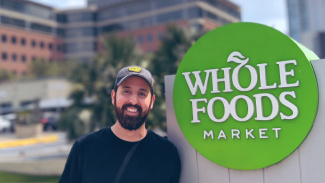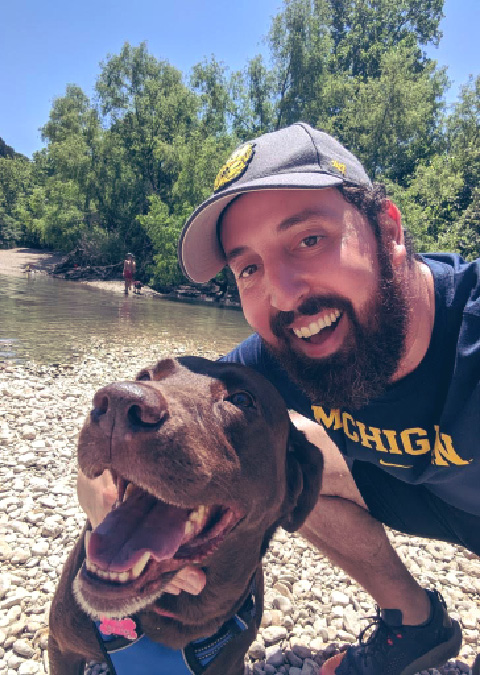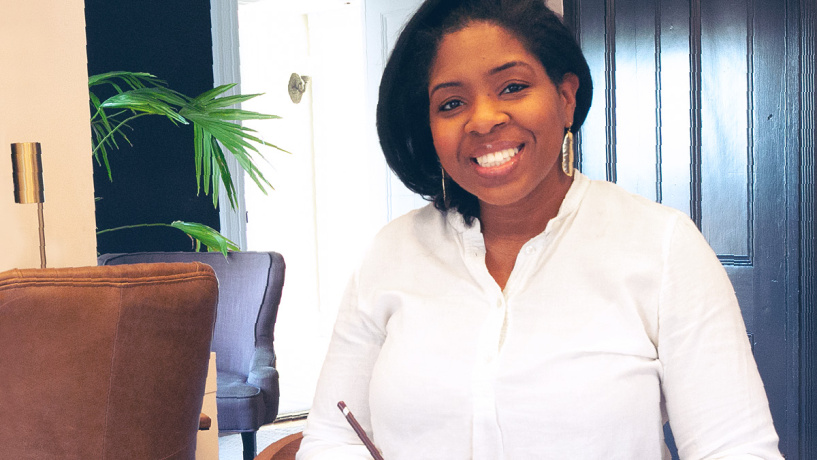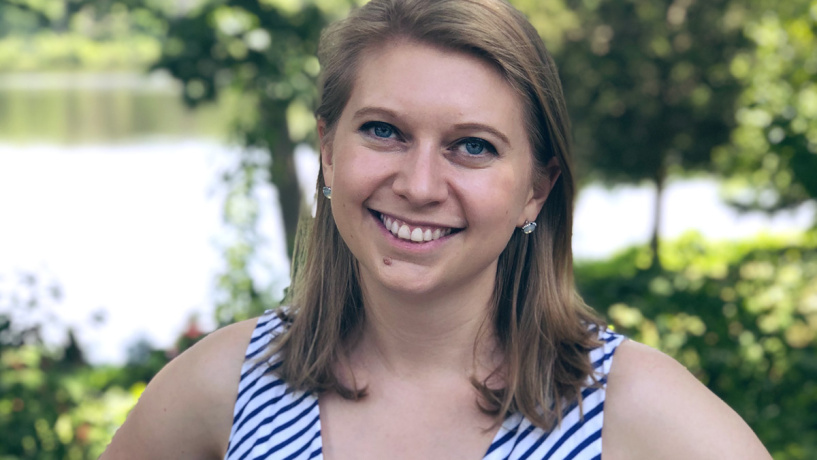Growing the Online Grocery Business for Amazon / Whole Foods — And Dealing with a Pandemic, Too

Noah Levin, MBA ’12, has spent nearly 10 years building up the online grocery category with Amazon.com, dating all the way back to his internship while a student at the Ross School of Business. So when the COVID-19 pandemic sent demand for online groceries skyrocketing, Levin and his team at Amazon were ready — up to a point.
It was overwhelming, but it was rewarding to know that we had a way to serve our customers and get them their groceries even if they couldn't leave their houses.
“We were grateful that we had already built what we had built, because it gave us a way to serve customers that they suddenly needed instead of just wanted,” says Levin, who was recently promoted to VP of e-commerce and digital product at Amazon’s Whole Foods subsidiary. “It was overwhelming, but it was rewarding to know that we had a way to serve our customers and get them their groceries even if they couldn't leave their houses.”
Meeting that need created some challenges, however. “The rush of demand was tricky for all grocers, but for online grocery it's especially tricky because you have finite capacity,” says Levin. “We spent a lot of energy and a lot of time increasing our capacity, and finding more graceful ways to serve customers when capacity was outpaced by demand.”
This included things like making it easier for customers to see the next available time slot, and introducing an online queue for customers to reserve a slot as soon as one becomes available. “The whole team rallied to serve as much demand and as many customers as possible when they needed us most, and as a result our service is more robust today than it was before,” Levin says.
The impact of action-based learning
Playing a key role in an international health crisis wasn’t really on Levin’s mind prior to B-school, when he was producing corporate events for McDonald’s in Chicago. “I really was attracted to the business side of it, and I wanted to learn more about it. That's why I applied to business school without a real sense of what I wanted to do,” Levin recalls.
When I went to visit Ross, there was something magical about the campus. The people are really good human beings. There’s a certain culture and community to it, and it was the environment I wanted to spend two years in.
Ross taught him that he was smart enough to find the right tools and figure things out for himself. “I was a textbook career changer. I was changing both my function and my industry, and I didn't know what those were going to be,” he says. “I’m incredibly grateful to Ross for exposing me to a broad set of options and helping me land in a career that I love.”
A MAP project for YouTube provided valuable experience — and ultimately inspired Levin to sponsor a project himself, set to take place next spring. His summer internship, though, turned out to be truly life-changing. Assigned to Amazon Fresh — the company’s first, experimental, Seattle-only foray into the online grocery industry — he was asked to investigate the possibility of selling third-party fresh groceries, hosted and fulfilled by Amazon.
When Levin submitted a rough draft of a plan halfway through his internship, the feedback he got from the director of Amazon Fresh was unexpected: What do you need to launch this for real?
“It catches you off guard!” he laughs. “As an intern, I ended up getting paired with some of the most senior engineers at Amazon. About two weeks after my internship ended, my product idea launched and Amazon Fresh started selling third-party merchant goods. It's the pre-pre-precursor to the way Whole Foods is selling products on Amazon today. So you can draw a through line, and it's pretty cool to know that I was part of the beginning of it.”
Growth in online groceries
The years since then have seen growing acceptance of online grocery shopping, even before COVID-19 spurred many more people to try the concept.
“When I started working at Amazon Fresh, there was a lot of persuading people that this was a good idea and being laughed at when I told people I was selling bananas on the internet,” Levin says. “But what seemed ludicrous has now become normal, and even necessary.”
When the pandemic hit, with all its attendant challenges, the company asked Levin to lead a task force on how its physical stores should respond.
“In the early days of the pandemic, new information was coming to us continuously, so staying informed on the right thing to do in our stores was not an easy task. My job was to facilitate a daily conversation with subject-matter experts around what needed to get done, and then to create structure to ensure that it got done,” he says.
But what seemed ludicrous has now become normal, and even necessary.
“We introduced social distancing in our stores with innovations like decals on the floor and plexiglass dividers at the register, things which are now standard. We implemented temperature checks for employees, implemented mask requirements for employees, kept our stores stocked with PPE and cleaning supplies. What surprised me most was that central decision-making has its limits. We got faster at rolling out changes once we recognized that store operators know how best to execute in their stores.”

Post-pandemic, Levin only sees the online grocery business continuing to grow.
“Online grocery is still in its infancy. If you think about the feeling of walking into a Whole Foods, there’s a sense of abundance and bounty and inspiration that we're working hard to bring to the online experience, but I think we still have work to do,” he says.
“But because so many customers have now gotten over that hurdle of placing their first order, I do expect to see customers stick with it at least for a share of their grocery shopping. More people will be omni-channel. More people will shop both in-store and online, pickup and delivery. That's our hope, anyway.”







